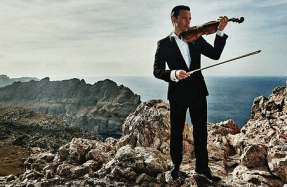Choral & Song

Beethoven
Works for Voice and Orchestra: Primo amore, piacer del ciel; Ah! Perfido; No, non turbati; Die schöne Schusterin – arias; Prüfung des Küssens; Mit Mädeln sich vertragen; Ne’ giorni tuoi felici; Tremate, empi, tremate
Reetta Haavisto (soprano), Dan Karlström (tenor), Kevin Greenlaw (baritone); Turku Philharmonic Orchestra/ Leif Segerstam
Naxos 8.573882 72:34 mins

Here’s another of music history’s what-ifs: had his mother not fallen ill, forcing him to go home to Bonn, the teenage Beethoven would have studied with Mozart in Vienna. By the time he was able to return Mozart was dead, and instead he took lessons from Salieri, as prized a teacher as any. But would Beethoven’s comparatively sparse lyric output have been more expansive had he been schooled early on by someone so effortlessly tuned in to the possibilities of the human voice as Mozart, and who shared more of his rule-breaking capacities?
This disc encompasses a handful of arias and concert , all written before the premiere of the first version of his opera ; and while rule-breaking isn’t really its point there is still much to enjoy in hearing Beethoven feeling his way towards the greatness of his only opera, especially given the elegant playing of the Turku Philharmonic for Leif Segerstam, and the classy singing of Reetta Haavisto. In the dramatic ‘Primo amore, piacer del ciel’, ‘No, non turbati’ and ‘Ah! Perfido’, her creamy soprano is equal to everything Beethoven demands, even if it doesn’t quite paint the texts’ changes of mood in full colour. Tenorarias, especially Greenlaw in his roistering paean to the high life.
You’re reading a preview, subscribe to read more.
Start your free 30 days



